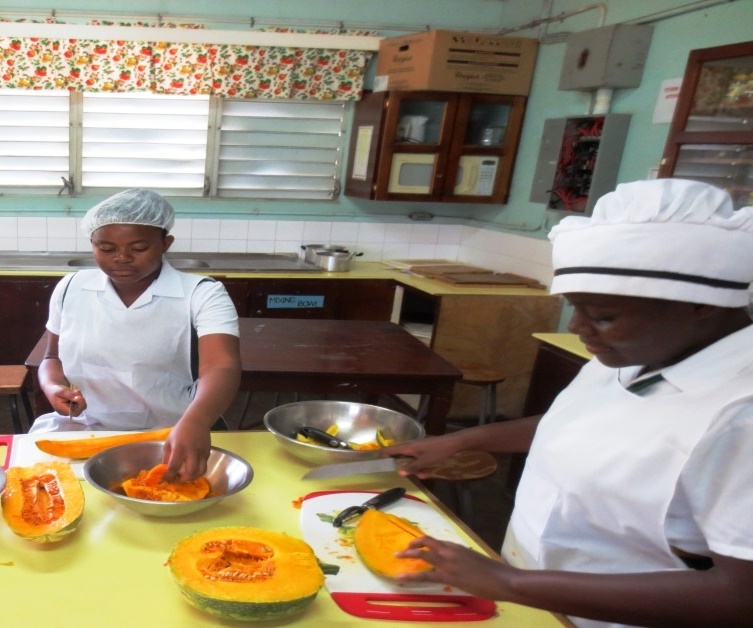The Ministry of Education has been encouraging the use of innovation, technology and creativity in the classroom to boost the learning ability and technical skills of students especially at the secondary school level.
In this regard, the Agriculture Science Department at Vere Technical High School in Clarendon, in collaboration with other departments at the institution including the Home Economics, Business, Engineering and Information Technology, has been successfully spearheading a number of projects with the objective of assimilating integrative learning techniques to engage their students.
According to Clovis Duncan, head of the Agricultural Science Department, the students are the ones who initiate the ideas for most of the projects and the school facilitates their concepts. “The students are enthused because they are involved in the day-to-day activities of the department,” Duncan said.
There are four classes with over 35 students in each. Each class is required to operate the farm for a day. This is good for exam purposes and for students submitting their school-based assessments, Duncan noted.
“The students do very well in internal and external examinations. We have up to 100 percent pass rates in CSEC (Caribbean Secondary EducationCertificate) examination and CAPE (Caribbean Advanced Proficiency Examination).This year we have over 55 students that should register for the next sitting,” Duncan disclosed.
Some of the crops grown at the school include cassava, sweet potato, tomato and pakchoi. There is a poultry farm, pigs, goats and bees that are all maintained by the students. Duncan said they would like to get assistance to build a greenhouse where they could also plant sweet peppers and lettuce. He added that they would like to erect a perimeter fence to prevent praedial larceny that has been rampant at the school.
Meanwhile, with the use of renewable resources to provide energy becoming a major focal point in Jamaica, students at the institution are also creating avenues to curtail the use of oil for energy. They created a wind turbine that is used to provide power for a chicken coop. The Engineering Department was responsible for the power tool which was made using the blades of an old ceiling fan and other small pieces of discarded equipment.
The turbine produces up to 13.12 watts capable of powering up to six LED bulbs. The energy from the turbine is passed through an inverter to two 12-volt car batteries, where it is stored.
The group won the Scientific Research Council’s first prize last year for their creativity and originality of wind turbine-powered chicken coop. The students have also implemented aquaponics which combines conventional aquaculture with hydroponics to create a symbiotic ecosystem system, another one of several innovative ideas at the institution.
Over the years students of the school have walked away with first place prizes in different categories including Goat and Care Management, Selection and Grading of Vegetables, Budding and Grafting, Application and Maintenance of Farm Machines, Beef and Cattle Judging, Poultry Care and Management, Floral Arrangement and Project Work display.
They have also taken second and third place in several other categories including the Boy of the Year competition, the Poster competition, Practices and Management of Organic Farming, Use and Management of Agro Chemicals, Making of Sandwiches, Meal Preparation and the Making of the 4H Uniform.


